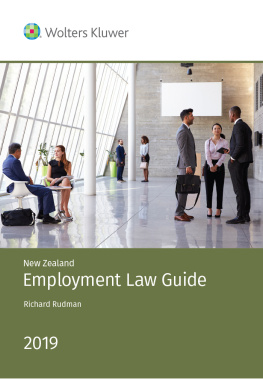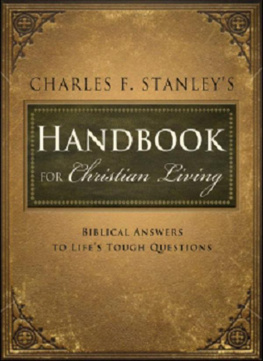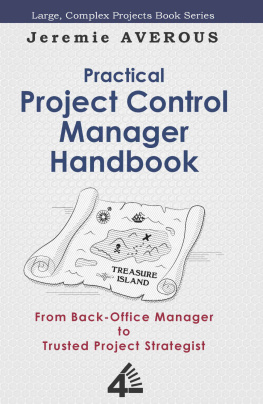Product Information
About Wolters Kluwer
Wolters Kluwer enables legal, tax, finance, and healthcare professionals to be more effective and efficient. We provide information, software, and services that deliver vital insights, intelligent tools, and the guidance of subject-matter experts.
We create value by combining information, deep expertise, and technology to provide customers with solutions that improve their quality and effectiveness. Professionals turn to us when they need actionable information to better serve their clients.
Wolters Kluwer. When you have to be right.
Enquiries are welcome on 0800 500 224.
A catalogue record for this book is available from the National Library of New Zealand.
ISBN 978-1-77547-237-7 (eBook)
2017 CCH New Zealand Limited
Published by CCH New Zealand Limited
First published September 2017
All rights reserved. No part of this work covered by copyright may be reproduced or copied in any form or by any means (graphic, electronic or mechanical, including photocopying, recording, recording taping, or information retrieval systems) without the written permission of the publisher.
Printed in New Zealand by Ligare Limited
About the Author
Richard Rudman has worked in the field of human resources management for almost half a century as practitioner, consultant, university lecturer, researcher, and writer. Before setting up his own consulting business, he held corporate roles in HR management, staff development, and industrial relations. His consulting work covered both the private and public sectors, for large and small organisations.
Richard Rudman has written widely on human resources topics; and this is his third book for Wolters Kluwer/CCH New Zealand. The other titles are the New Zealand Employment Law Guide a plain language guide published annually since 2000, and Getting the Right People: Effective Recruitment and Selection Today, published in 2010. He also writes the CCH Workforce Manager series six collections of information and customisable resources which extend across the full range of employment topics.
He is the author of Performance Planning and Review: Making Employee Appraisals Work, the second edition of which was published by Allen & Unwin in 2003.
Richard Rudman was the inaugural National President of the Institute of Personnel Management New Zealand. It later became the Human Resources Institute of New Zealand of which he is a Distinguished Fellow.
He has taught human resources management at Victoria University of Wellington and Massey University, presented papers at several international conferences, and led executive development programmes in New Zealand and overseas. He holds degrees from Auckland University and Victoria University of Wellington.
Publishers Acknowledgments
We wish to thank the following who contributed to and supported this publication:
General Manager: Julie Benton
Head of Content: Andrew Campbell
Editor: Reshma Korah
Composition/Graphics Editor: Barbara Hodgson
Indexer: Julie McMeikan
Cover Designer: Envisage Design
Introduction
HR Manager is a handbook for human resources practitioners, managers, students, and anyone else who is interested in how people are managed at work. It aims to provide a comprehensive overview of human resources management, and the functions and activities associated with this key field of management.
HR Manager is not written solely for HR professionals, although it will give them ready access to up-to-date information and discussion of their specialist fields. It is written also for people who are thinking about or just embarking on work in human resources management, or studying HR at a tertiary level. Anybody who manages people will also find the book helpful and informative across a range of activities which are becoming more challenging and complex.
HR Manager is written, as far as possible, in plain English. HR management might be complex, but there is no need to make it more complicated by using more jargon than necessary. It is also designed so that readers can easily find the topics which interest them at any time in other words, its user-friendly.
HR Manager is up-to-date, as far as possible. The aim is to keep it current, with an annual new edition which will incorporate the latest in research and changes to relevant employment law.
Richard Rudman
August 2017
1. HR AND THE FUTURE OF WORK
The cries of doom are relentless. The end of jobs, the end of work, the end of . People have always been fascinated by the future, and fixated on the need to predict it. This might simply be a reaction to sudden, or rapid, or significant change and disruption in the present environment. Currently, the focus is the future of work and the impact of the Fourth Industrial Revolution. What seems certain from the predictions or what the predictions seem certain of is that both life and work will continue to change, and the pace of change will continue to quicken.
However, older heads suggest that change might not be so profound. They point back nearly 50 years to the predictions of Alvin Toffler, who conceived of future shock as a condition which struck both people and societies when there was too much change in too short a time. Many of the trends identified by Toffler have played out (eg knowledge has indeed become the driving force of powerful societies), but others have not (eg we do not live in a society where there is no reason to own things). Nor do we have mass unemployment or a standard four-day working week which other futurists thought would be inevitable consequences of change. All of which serves as a reminder that prediction is an art, not a science, especially when its about the future.
What does this mean for HR? First, we might pause to examine some of the headlines. Take one example, the frequent assertion that jobs will be destroyed in their millions by that scary-sounding Artificial Intelligence. One study examined the probability of computerisation for 702 occupations and found that 47% of workers in America had jobs at high risk of potential automation. In particular, most workers in transport and logistics (eg taxi and delivery drivers) and office support (eg receptionists and security guards) were likely to be substituted by computer capital, and many workers in sales and services (eg cashiers, clerks, telemarketers and accountants) also faced a high risk of computerisation.
Yes, it is true that AI technologies are being used in manufacturing, transport, education, medicine and other areas and will improve productivity way beyond the capacity of conventional computing. But, as Hans Moravec and others have pointed out, what is easy for people is hard for even the most sophisticated AI Smart machines can perform mathematical calculations far exceeding a humans capabilities, but they cannot easily climb stairs, open a door, and turn a valve. There are other limitations. Todays algorithms are good at pattern recognition in large data sets, but not when there is no established pattern or there is not much data. Thats when you need skilled people, with experience, intuition, and social awareness. Nor can smart machines explain what they have done or why they are recommending a course of action. All of this suggests that the worst of the future is still a long way off.










